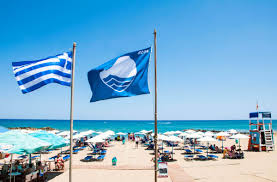The Blue Flag Standards
Blue Flag is a certification that endorses the stringent quality standards maintained by a beach, marina or boating operator. It is closely associated with preservation of environment and contributes in environmental education and education for sustainable development.
Standards to be maintained for Blue Flag Award
Blue Flag certification stipulates standards for water quality, safety, environmental education, environmental management and quality services. The Blue Flag certification is a prestigious endorsement for the highest level of quality standards environmental protection steps maintained by beaches, marinas and boating tourism operators.
The certificates are referred as awards. These awards are issued annually to beaches and marinas in member countries. The awards are announced on June 5, the World Environment Day for Europe, Canada, India, Morocco, Tunisia and other countries in a similar environmental location. For countries in the Caribbean, South Africa , New Zealand and other member countries in the southern hemisphere, November 1 is the award announcement date.
Beaches must be free from plastics and equipped with waste management system. International amenities and clean water should be available for tourists. Also beaches should have amenities for studying the environmental impact around the area. To attain the Blue Flag standards, a beach must comply with thirty three environment and tourism-related stipulations.
Foundation for Environmental Education (FEE)- The force behind the Blue Flag certification
The Foundation for Environmental Education (FEE) is a Copenhagen based not for profit, non -governmental organization. The Blue Flag standards were established by FEE in 1985. The Blue Flag trade mark is owned by FEE. The foundation has 76 member countries from Europe, North America, South America , Oceania and Asia. FEE acts as an umbrella organization.
Countries with maximum number of Blue Flag certifications
Spain is the leader of the group with 578 Blue Flag awards as on date. The other countries) that occupy the top positions are Turkey (436), Greece (395), France (394), Italy (342), Denmark (250) and Portugal (299. The number of awards is recognition for the countries for the importance being given for marine environmental protection.
Realizing the importance of marine environment protection, European Union has incorporated the water quality standards in the EC Water framework Directive.
Blue Flag certification – Asia and India
The countries in Asia are yet to catch up with countries in other continents. The Chandrabhaga beach on the coast of Odisha , India is the first Asian and India beach that received the first blue flag certification. The beach received the certification on June 5, 2018.
In India, the Society for Integrated Coastal Management (SICOM) is co-ordinating the matters related to the Blue Flag certification. SICOM is a body of the Environment Ministry. Twelve more beaches in the country are in the advanced stages of receiving the award. They include Chiwla and Bhogave beaches in Maharashtra. Other beaches are in Daman and Diu, Puducherry, Goa, Lakshadweep and the Andaman and Nicobar Islands. India began pursuing the Blue Flag project in December 2017.
Global Dimming
Green Building and LEED Certification









